New Zealand journalist Charlotte Bellis asks a key question about women’s rights in Afghanistan after the Taliban takeover during spokesman Zabihullah Mujahid’s first media conference in Kabul on August 18. Video: Al Jazeera
New Zealand journalist Charlotte Bellis, who works for Al Jazeera, has been visiting Kabul International Airport – until last Monday the only access point into and out of Afghanistan.
While locals and foreign nationals alike scrambled to leave the country for the past two weeks after the Taliban takeover, Bellis says she will be sticking around for as long as she can.
- READ MORE: Taliban says formation of new Afghan government in its final stages
- After US withdrawal, few answers for Afghans left behind
- Other Afghanistan reports
- LISTEN TO RNZ SUNDAY MORNING: The full interview with Charlotte Bellis
Bellis tells Jim Mora she was on the New Zealand evacuation list and saw first-hand how Western nations were trying to manage the chaotic situation.
“Most days you get an email saying, ‘okay, if you’re going to try to get out today, go to the North Gate’, then you get an email saying, ‘no, it’s dangerous, go to the South Gate’, and then an email saying, ‘no, don’t go at all, it’s too dangerous, we’ll get back to you’.
“And then finally an email saying, ‘I’m sorry the mission is over, if you didn’t make it, please email us and we’ll do our best to get you out somehow’.”
The danger reached a peak on August 26 and members of the media then agreed not to return to Kabul Airport, she says.
“A few hours later, there were the explosions.
“Even before that, the Taliban were in charge of guarding a perimeter. They were very tense, and firing in the air a lot, and beating people. I saw them running around with machetes… quite a few people left bloodied,” she says.
“A lot of people were scared off and decided not to even try to reach the airport even those who had the correct paperwork.”
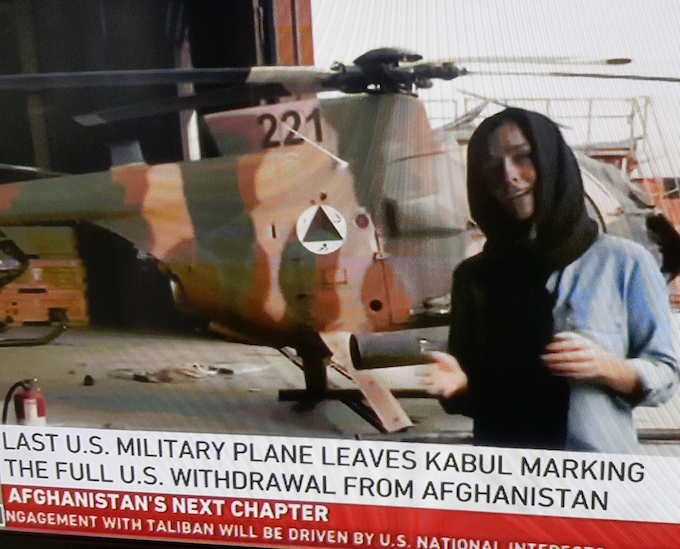
Most people heading for the airport were aware of the security issues, Bellis says, but nevertheless many were that desperate to flee.
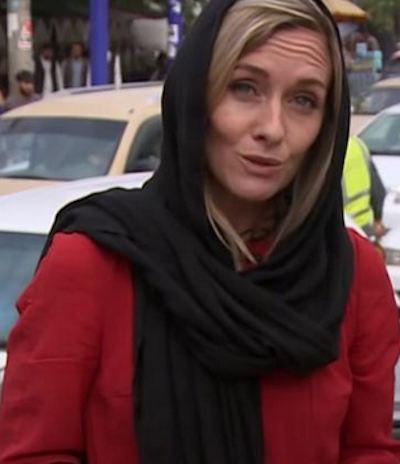
“A lot of the alerts we got were in English that were circulated in the expat community. Whether or not that filtered down to everyday Afghans trying to get out, I don’t know,” she said.
“There was a lot of confusion about who should’ve been allowed on the flight. You can imagine Taliban fighters who may or may not speak various languages, trying to read paperwork, I mean it was just an absolute mare.”
The last frontier against Taliban forces at Kabul airport was a group of CIA-funded militia known as 01 Units which have a “terrible reputation” in Afghanistan, Bellis says.
This group was also due to leave, she says.
“[Afghan president] Ashraf Ghani’s brother told me that [this militia group] are essentially bounty hunters. The Americans gave them a list of names of people they wanted killed and they did it, they did night raids and killed people from their homes.
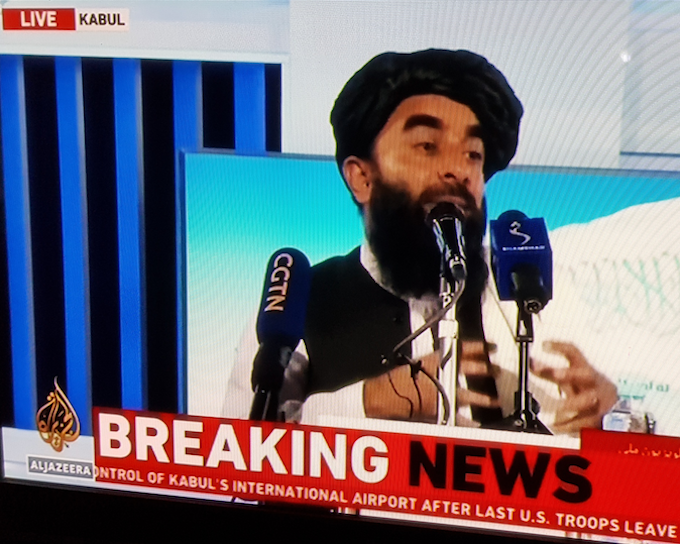
“There’s been quite a few stories about them over the years, but they were incredibly secretive … they were running security on the north side of the airport for the last two weeks, I went down there and talked to them.”
The Taliban say Kabul Airport will continue to operate, but without air traffic controllers they have asked Turkey for “technical personnel”, Bellis says.
“But whether the Turkish airlines, Emirates, the companies that usually fly in and out, trust them enough to run the airport is another question.”
‘I will stay here for as long as I can’
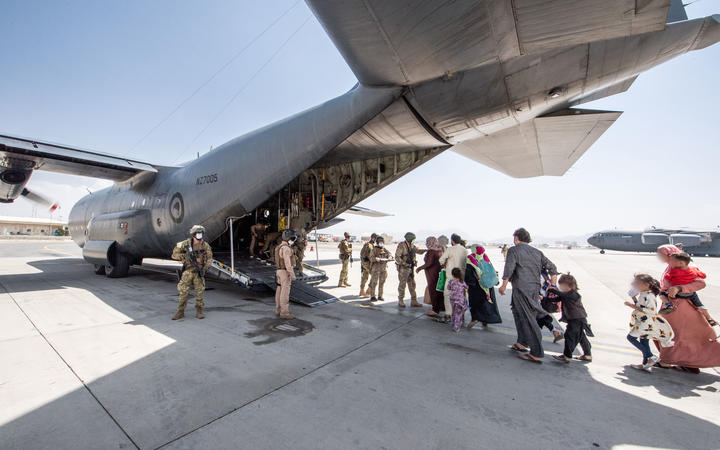
Charlotte says that working for Al Jazeera, which is based in Qatar where negotiations with the Taliban happened, puts her in a better position than journalists working for American news services.
She has also built media relationships with the Taliban. The group have come to know her now, she says, and have even said they would help her safely evacuate if need be.
Being from New Zealand – a country the Taliban does not have major issues with – also helps, Bellis says.
She says she has told the Taliban she will keep asking questions about their actions.
“They’ve said go for it, as long as you’re objective and fair. We welcome criticism, we want to improve and if you ever have any problems, call us,” she says.
“Hopefully that all plays out and I will stay here for as long as I can.”
While the Taliban have claimed they will give women rights, Bellis was one of the first to speak up at their first press conference to ask about this.
“I’ve said to the Taliban, you’ve got a real problem here, because if you’re going to be successful in running the country you need people to trust you and you need to build that trust and you need to be transparent … I think only time will tell.”
The perception of the Taliban in the West is quite flawed, Bellis says.
“We think of them as this inhumane terrorist organisation when in fact, in the leadership at least, there are quite a lot of educated people, they’re quite rational. There’s also groups who just want to fight, then there’s also politicians who will just tell you what you want to hear.
“It depends on who ends up holding the reigns of the organisation.
“Hopefully it is some of the people who I’ve had dealings with, who are more objective, rational, willing to work with the West, and make compromises on certain things and aren’t as conservative as others.”
Challenges to governing
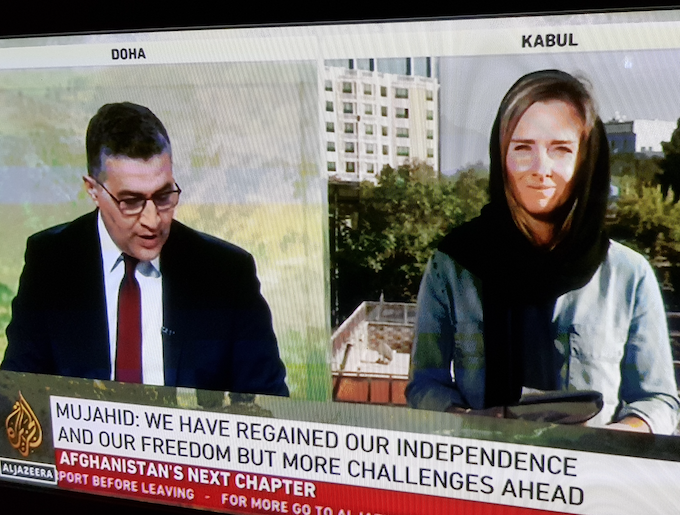
Lack of money and the departure of skilled workers are just a couple of the obstacles facing Afghanistan now, Charlotte says, as the IMF and World Bank hold off funds,” Bellis says.
“They’ve essentially put a stop to any money coming in … this country ran on donations and has done for 20 years and now that has stopped.
“Everyone is holding their money back and saying to the Taliban you have to play ball, we’re not going to give you money and then watch you close down girls’ schools.
“But the problem is how long will it take for them to trust the Taliban? Because in the meantime people aren’t getting paid and the economy is being run into the ground.”
Meanwhile, it appears the Taliban has been building a behind-the-scenes relationship with China for a few years now, Bellis says.
“There’s been a lot of little things happening, that signalled they are ready to build a relationship together. The Chinese, even before the Taliban took over, were preparing to recognise the Taliban as a government.
“The Chinese have had the rights to minerals here for some time, but they haven’t been able to mine because of the war and security. They’ve had reason to want to see the war end.”
This article is republished under a community partnership agreement with RNZ.










































